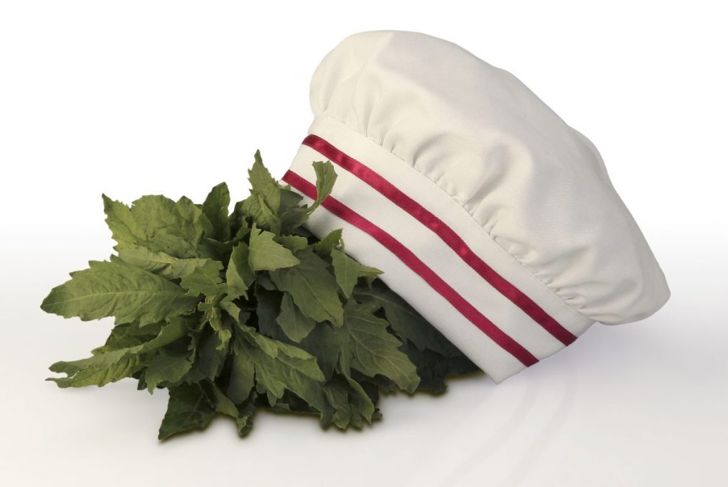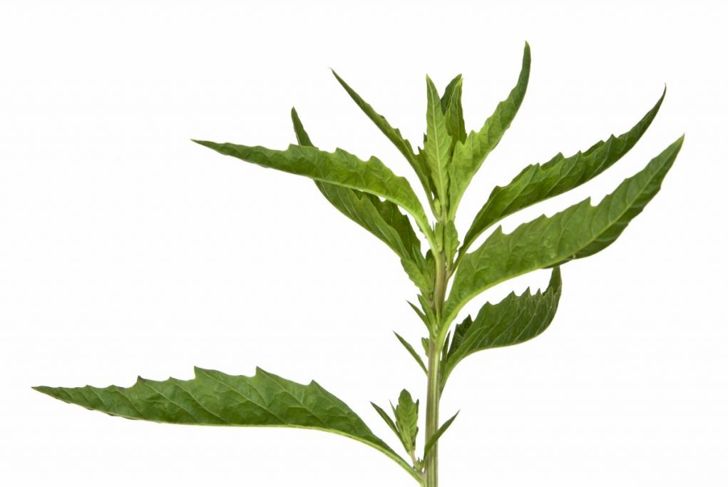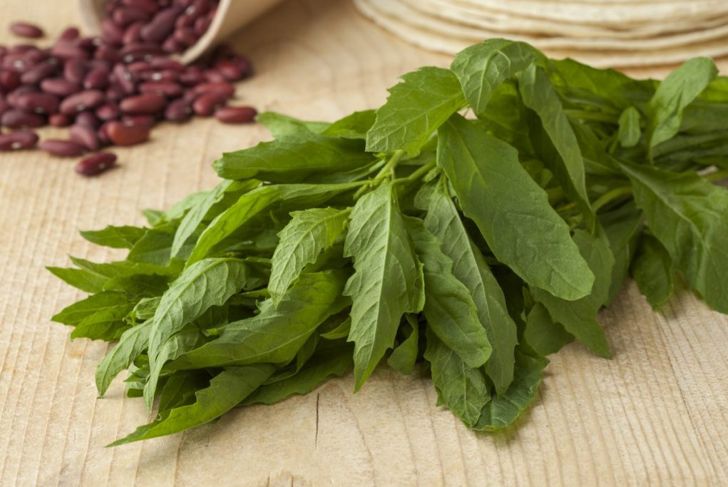Latin American cooking and indigenous medicine have utilized the epazote herb for centuries. The plant is native to Mexico but grows in many areas of Latin America. Common in traditional Mexican cooking, indigenous tribes have reaped the health benefits of epazote for many generations. Dysphania ambrosioides is also called wormseed, skunkweed, and Mexican tea. In Mexico and Guatemala, some people call the herb “stinky weed,” and in Peru, it’s called paico.
Why have I never heard of epazote?
Even though epazote has a long history of use in Latin America, it’s only recently getting the attention of researchers interested in its medicinal benefits. Currently, there’s more demand for and openness to natural health remedies using traditional plants and plant-based supplements. Therefore, epazote is gaining popularity among natural medicine researchers, providers, and consumers.
Where can you find or purchase epazote?
Epazote is an herb, but it grows like a weed along roadsides or disturbed soil terrain. The dark green annual plant has sharp-toothed leaves and reddish stems. It has small yellow flowers that drop off and yield tiny black seeded fruit. In Canada and the US, most people can buy epazote at Latin American food stores. In places like Mexico or Central and South America, it’s a common herb found in many households. You can easily grow your own epazote plants using seeds purchased online, or you may find seeds at a local garden store.
The culinary uses of the epazote herb
Epazote is common in Mexican and Guatemalan cuisine; it often flavors beans and is added to stews, sauces, and corn dishes. It has a strong, pungent flavor said to be a mix of skunk, oil, and mint. Therefore, the herb has an acquired taste, similar to cilantro. Epazote is said to decrease the flatulence associated with beans and cruciferous vegetables such as broccoli and spinach. When cooking with epazote, be sure to add it towards the end of the cooking process, as the flavor can’t withstand high heat for too long.
What vitamins and minerals does epazote contain?
Epazote is rich in vitamin A, beta-carotene, and folic acid. It contains small amounts of B-complex, as well. This makes it a good anti-oxidant and immune booster. Epazote is also high in minerals such as calcium, manganese, iron, potassium, copper, selenium, and zinc. This makes it a highly nutritious herb with protective benefits for your health.
What are the gastrointestinal benefits?
Epazote has been used in both indigenous and current herbal medicine to provide treatment and support for various gastrointestinal issues. It decreases gas, bloating, and cramps, and helps soothe and treat gastritis and acid reflux. It’s also helpful for constipation, works as a digestive stimulant, and can detoxify and strengthen the liver.
What are the anti-parasitic benefits?
Historically, epazote has been used to treat intestinal parasites. Research shows extracts from epazote leaves are 100% effective for the eggs and parasitic burden of tapeworms, whipworms, and some species of hookworms. In cases of roundworms, the herb appears to be 100% effective in killing eggs and 56% effective in decreasing parasitic burden.
What are the respiratory benefits?
Epazote has a relaxing effect on lung tissues, as well as anti-inflammatory and expectorant properties. It promotes sweating and sedation and stimulates the immune system. Therefore, it has medicinal benefits for those experiencing asthma, bronchitis, or other respiratory illnesses. Research shows epazote may have a toxic effect on the tuberculosis bacteria, making it a potential treatment for the condition.
Are there other medicinal uses?
Recent studies show epazote may effectively fight cancer and tumors. They report the extract and essential oil of the herb can kill human cancer cells in a test tube. However, the majority of modern medicine practitioners have yet to accept epazote as a treatment.Some other medicinal uses include:
- Stimulates menstruation
- A wound healing agent and astringent
- Helpful for parasitic infections in domestic pets (dogs and cats)
- Helpful as a diuretic agent
- Potential contraceptive benefit
Are there any dangers or side effects?
Epazote has some risks that are important to know if you plan to consume it. Although there are contraceptive benefits to this herb, you would not want to rely on it. Similarly, pregnant or lactating women should not consume epazote, as it can have an abortion-inducing effect. Also, high doses of epazote, such as concentrated essential oil or large amounts of the leaves, can prove toxic.
How to safely prepare and consume epazote
The facts and health benefits of epazote show it is a highly useful herb for both culinary and medicinal purposes. To safely consume epazote, use only a small amount of fresh or dried leaves at a time. Medical professionals recommend avoiding highly concentrated essential oils of the plant. For medicinal use, consume a 1/2 cup of a decoction once a day. To make a decoction, boil one ounce of epazote leaves in one pint of water in a stainless steel pot until the mixture reduces by a quarter of its original volume. You can store the rest of the decoction in your refrigerator. For cooking, use only a few whole leaves or half a teaspoon of dried leaves per recipe.

 Home
Home Health
Health Diet & Nutrition
Diet & Nutrition Living Well
Living Well More
More




















